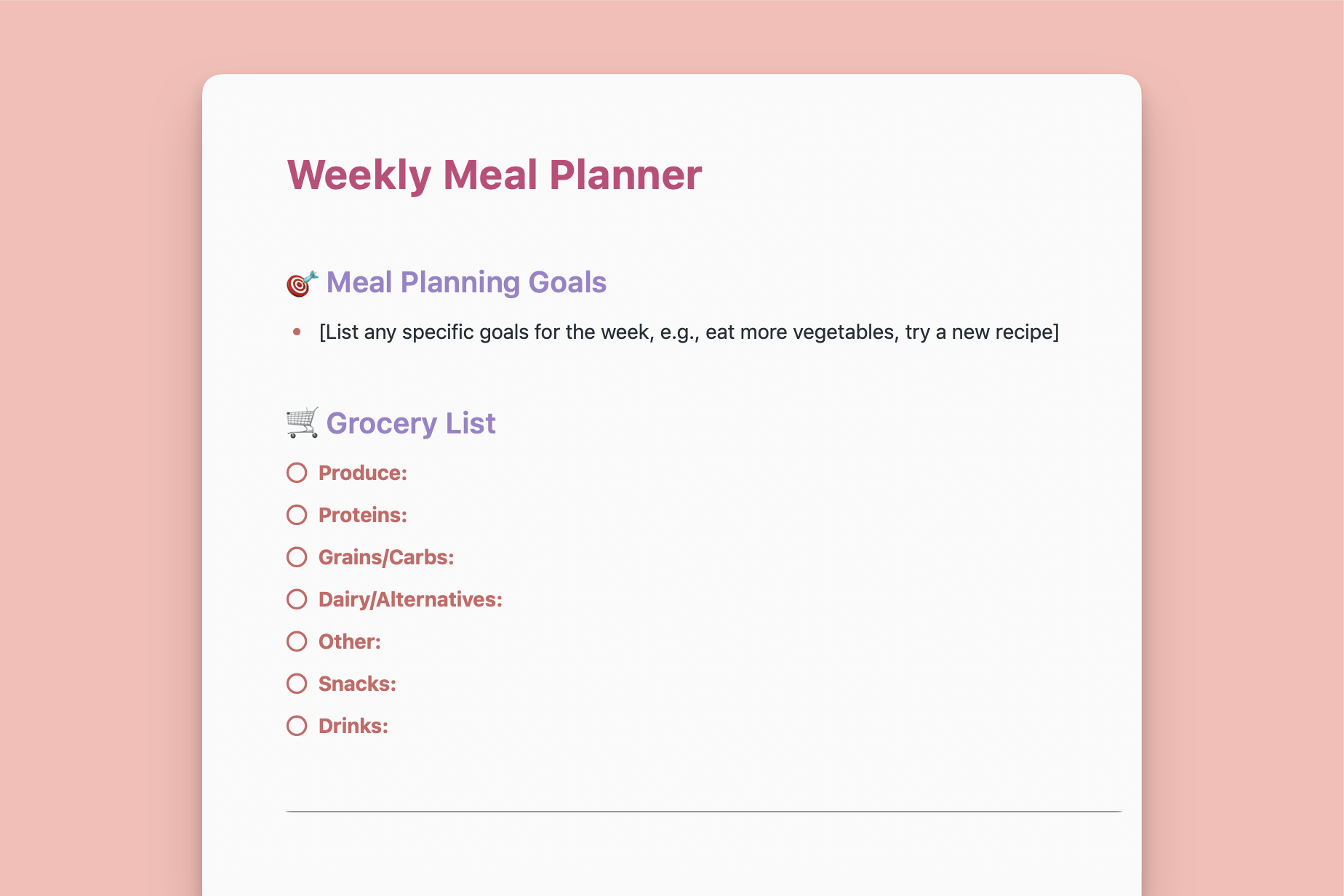Home

Weekly Meal Planner
Simplify mealtime and eat healthier with this all-in-one weekly meal planner template
Get things done with NotePlan
Categories
Personal
Weekly Notes
This comprehensive template is your ultimate tool for taking control of your meals and nutrition. Whether you're looking to eat healthier, save money, or simply streamline your weekly cooking, this planner has you covered.
By taking a proactive approach to meal planning, you can:
- Save Time & Money: No more last-minute trips to the grocery store or impulse takeout orders.
- Eat Healthier: With a plan in place, you're more likely to make nutritious choices and avoid unhealthy temptations.
- Reduce Food Waste: Plan your meals around what you already have on hand and make the most of leftovers.
- Discover New Recipes: Explore a world of culinary possibilities and expand your cooking repertoire.
- Meet Your Dietary Goals: Whether it's eating more vegetables, reducing sugar, or trying a new diet, this template helps you stay on track.
- Simplify Your Week: Knowing what's for dinner (and breakfast and lunch!) takes the stress out of mealtime.
How to Use This Template
- Meal Planning Goals: Start by setting clear objectives for the week. Do you want to try new recipes? Incorporate more seasonal produce? Reduce your reliance on processed foods? Write your goals at the top to keep them in focus.
- Grocery List: With your goals in mind, create a detailed shopping list, categorized by type of food (produce, proteins, grains, etc.). This ensures you have everything you need for the week.
- Meal Schedule: Fill in each day with your planned breakfast, lunch, and dinner. You can also note any leftovers or special considerations.
- Recipe Ideas/Links: Keep track of tempting recipes you find online or in cookbooks. Paste the links here for easy reference.
- Meal Prep Notes: List any tasks you can complete in advance to streamline your weeknight cooking. For example, chopping vegetables, marinating proteins, or cooking grains.
- Budget: Set a spending limit for the week and track your grocery expenses. This helps you stay within your budget and identify areas where you can save.
- Reflections: At the end of the week, take some time to reflect on your meal plan. What worked well? What didn't? Did you discover any new favorite recipes? Use this information to improve your planning for the next week.
Additional Tips:
- Be Flexible: Things don't always go according to plan. Feel free to adjust your meal schedule if needed.
- Get Creative: Don't be afraid to experiment with new recipes and flavor combinations.
- Have Fun! Meal planning should be enjoyable, not a chore.
Happy Cooking!